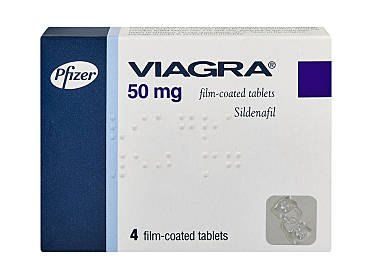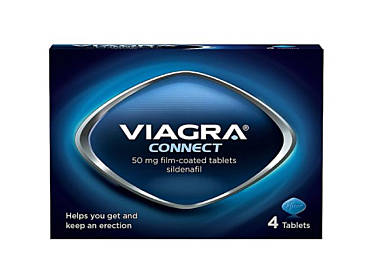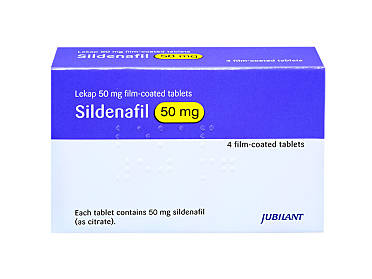How Long Does It Take for Viagra to Work?

Medically reviewed by
Dr Kathryn BasfordLast reviewed: 04 Jun 2019
How to use Viagra for best results

Key takeaways
The average start time for Viagra is 30-60 mins
Viagra won't cause an erection on it's own and you need to be aroused for it to work
Avoid heavy meals before taking Viagra so you don't slow it down
Viagra usually lasts 4-6 hours
Taking more than 1 Viagra a day is unsafe and won't make it work any faster
If you’re thinking about taking Viagra, you should know it’s considered a ‘fast-acting’ drug. Once you take it, it should start working for you in about 30 mins. It’s usually in full swing by about the 1-hour mark, unless you’ve had a heavy meal beforehand. Most other medication takes about as long to get started, except for Spedra which can get going in just 15 mins.
How long does it take Viagra to kick in?
Viagra is usually thought of as a ‘fast-acting’ drug. This means it enters your system quickly, but there’s no exact time for it to start working.
The average start time for Viagra is 30-60 mins. But, the results vary from person to person, so it could happen for you faster than 30 mins, or slower than 60.
Remember:
- Viagra on it’s own shouldn’t cause an erection
- You need to feel aroused for Viagra to help you get an erection
- Viagra doesn’t always work the first time and you might need to try it on up to 4 different days to see the full effect
- Viagra doesn’t work for everyone and if it still hasn’t worked after a few tries, you might want to think about a higher dose or another medication
If you’re worried about Viagra not getting to work in time for sex, you could try testing out how long it takes for you to get an erection with Viagra on your own first. Once you know how long it takes for you, then you could try it out with a partner and be able to time it better.
Can you make Viagra work quicker?
There’s nothing you can do to speed up Viagra. It takes time to get absorbed by your body and nothing can make this happen faster. But, there are some things you can do to make sure you aren’t slowing Viagra down.
Avoid:
- eating heavy meals or fatty foods before using Viagra – try taking it on an empty stomach or after a light meal
- alcohol – even though alcohol can help you relax before sex, it can affect how well Viagra works
- grapefruit or grapefruit juice – these can affect how Viagra works
Even if you’re worried about Viagra not working in time, don’t take another tablet. Taking extra pills won’t have any effect on how fast it works and you’ll be putting yourself at risk of serious side effects.
How do I take Viagra?
Viagra is a tablet you take with water:
- Take your pill roughly 30 mins before trying to have sex, or if you’ve timed it for yourself you can adjust when you take it
- Only take one tablet in the same 24 hour period
- Remember being aroused is necessary for getting an erection with Viagra
As well as avoiding heavy, fatty meals, alcohol, and grapefruit, there’s a few other things you can do to improve how well Viagra works for you. These can include:
- Lifestyle changes, like weight loss or more exercise
- Pelvic floor exercises
- Counselling
- Devices like penis pumps or rings
How does Viagra work?
Viagra works for around 3 out of 4 men who try it, but it can take a few tries before you see the full effect when taking it for the first time. It makes it easier for you to get or keep an erection that’s hard enough to have sex with.
The active ingredient in Viagra is sildenafil which works by increasing blood flow to the penis to make it easier to get erections. It doesn’t cause erections directly, so you still have to be aroused for Viagra to work, just like if you didn’t need Viagra.
Viagra makes erections easier like this:
- there’s a chemical called PDE5 that helps blood vessels around the penis tighten which stops extra blood entering the penis when it’s not needed
- when you have erectile dysfunction, you don’t need as much PDE5 in the penis because it stops enough blood flowing in for you to get a proper erection
- Viagra makes the effect of PDE5 less strong for about 4-6 hours, so blood flows into your penis more easily than normal, making erections easier to get and keep
- this is why medications like Viagra are called PDE5-inhibitors
How long does Viagra last?
How long the effects lasts:
- Viagra usually lasts for 4 to 6 hours
- It can stop work earlier or last longer depending on the person
On average, erections with Viagra last for:
- 33 mins, 1 hour after taking Viagra
- 23 mins, 8 hours after taking Viagra
- 16 mins, 12 hours after taking Viagra
How long Viagra stays in your body:
- Viagra reaches the maximum level in your body around 1 hour after you take it
- After 4 hours there is still around 50% of the maximum level of Viagra still in your body
- After 8 hours there is only around 10% of the maximum level of Viagra left in your body
- At 24 hours all the Viagra in gone from your body and you can take another dose of Viagra again
How often should Viagra be taken?
Viagra should only ever be taken once a day. It’s not safe to take another one before the 24-hour mark, even if you aren’t feeling the effects any more, because there will still be some Viagra in your system and so you could raise the amount of Viagra in your body above a safe level.
Even if you’re taking less than the maximum daily dose of Viagra (100mg), you still shouldn’t take extra Viagra on the same day because you need a doctor to check a higher dose is safe for you first. If you want to increase your dosage, you use an online doctor service like ZAVA, or check with your GP.
There is no evidence that taking Viagra long-term causes any lasting health problems or that Viagra stops working as well the longer you take it for. So, Viagra can be used as a long-term treatment for erectile dysfunction, but it might be a good idea to think about other treatment options that can you improve your erections in the long-term too. These can include lifestyle changes, pelvic floor exercises, or counselling.
What alternatives are there to Viagra?
There are some other medications that can be good alternatives to Viagra. In particular, there’s a few that have less or no time to take effect compared to Viagra.
Spedra (avanafil):
- the fastest acting erectile dysfunction (ED) pill
- can take just 15 mins to get working
Cialis (tadalafil):
- takes about as long as Viagra to start working
- but, Cialis can last for up to 36 hours – it’s sometimes called the ‘weekend pill’
- this means you could take it earlier than you need to and you could have more spontaneous sex during the 36-hour window
- it’s still recommended you take it 1 hour before sex though
- this is a tablet with a lower dose than normal Cialis that you take every day
- it takes about 3 days to build up to a steady level in your body
- once it’s at the right level, you should be able to get erections easier at any time, so you don’t have to plan for sex
- this option is best if you have sex on more than 3 days a week
It’s also worth mentioning that if you fix the underlying causes of ED, you could make it easier to get erections any time (a bit like if you were using Cialis Daily). You can do this by:
- Making lifestyle changes
- Getting counselling
- Getting check for related health conditions that can cause ED
- Getting your other medications checked in case they’re causing ED as a side effect
Alternative medication for erectile dysfunction should always be regulated and recommended by doctors. Sildenafil contains products like Kamagra and Kamagra Oral Jelly may work differently and cause severe side effects.

Dr Kathryn Basford is a qualified GP who works as a GP in London, as well as with ZAVA. She graduated from the University of Manchester and completed her GP training through Whipps Cross Hospital in London.
Meet our doctorsLast reviewed: 04 Jun 2019
-
Aurobindo Pharma (2017). Sildenafil 100 mg film-coated tablets. EMC. [online] Available at: https://www.medicines.org.uk/emc/medicine/30907 [accessed 7th February 2019].
-
Buvat, J. et al (2013). Adherence to initial PDE5 inhibitor treatment: randomized OpenLabel study comparing tadalafil once a day, tadalafil on demand, and sildenafil on demand in patients with erectile dysfunction. The Journal of Sexual Medicine, Jun: 10(6): 1592-1602. [online] Available at: https://pubmed.ncbi.nlm.nih.gov/23551622/. [accessed 12th May 2021]
-
Chen, L. et al (2015). Phosphodiesterase 5 inhibitors for the treatment of erectile dysfunction: a trade-off network meta-analysis. Eur Urol., Oct; 68(4): 674-680. [online] Available at: https://pubmed.ncbi.nlm.nih.gov/25817916/. [accessed 12th May 2021]
-
Dong, A. S., Wroblewska, B. and Myers, A. K. (1995). Inhibitory effect of alcohol on cyclic GMP accumulation in human platelets. Thromb Res., Oct; 80(2): 143-51. [online] Available at: https://pubmed.ncbi.nlm.nih.gov/8588191/. [accessed 12th May 2021]
-
Eardley, I. et al (2002). Onset and duration of action of sildenafil citrate for the treatment of erectile dysfunction. Br J Clin Pharmacol.; 53: 61S-65S. [online] Available at: https://pubmed.ncbi.nlm.nih.gov/11879261/. [accessed 12th May 2021]







